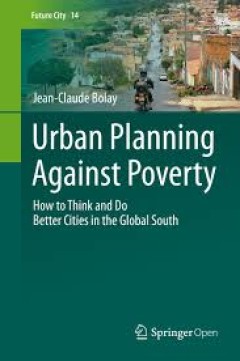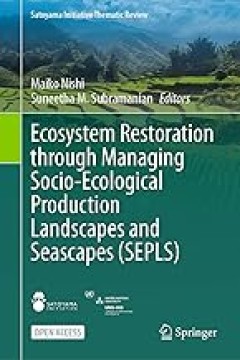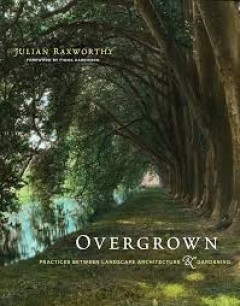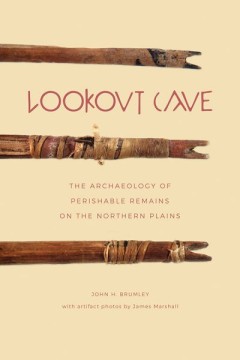Filter by

Urban Planning Against Poverty : How to Think and Do Better Cities in the Glo…
This open access book revisits the theoretical foundations of urban planning and the application of these concepts and methods in the context of Southern countries by examining several case studies from different regions of the world. For instance, the case of Koudougou, a medium-sized city in one of the poorest countries in the world, Burkina Faso, with a population of 115.000 inhabitants, all…
- Edition
- -
- ISBN/ISSN
- 978-3-030-28419-0
- Collation
- VIII, 214
- Series Title
- Future City (FUCI, volume 14)
- Call Number
- 307 BOL u

Biodiversity-Health-Sustainability Nexus in Socio-Ecological Production Lands…
This is an open access book. It is a compilation of case studies that provide useful knowledge and lessons that derive from on-the-ground activities and contribute to policy recommendations, focusing on the interlinkages between biodiversity and multiple dimensions of health (e.g., physical, mental, and spiritual) in managing socio-ecological production landscapes and seascapes (SEPLS). This bo…
- Edition
- 1
- ISBN/ISSN
- 978-981-16-9893-4
- Collation
- -
- Series Title
- Satoyama Initiative Thematic Review
- Call Number
- XXIV, 286

Urban Geology
Urban subsurface resources and particularly urban groundwater are vulnerable to environmental impacts, and their rational management is of major importance. In this book a multidisciplinary team of specialists and scientists presents innovative process-oriented approaches to the sustainable use of these resources. The included case studies from northwestern Switzerland describe representative e…
- Edition
- 1
- ISBN/ISSN
- 978-3-0348-0185-0
- Collation
- -
- Series Title
- -
- Call Number
- XVI, 216

Tourism and Conservation-based Development in the Periphery
This open access book applies a social ecological systems (SES) lens to conservation-based development in Patagonia, bringing together authors with historical, contemporary, and future-oriented perspectives in order to increase understanding of the social and environmental implications of nature-based tourism and other forms of conservation-based territorial development. By focusing on Patagoni…
- Edition
- -
- ISBN/ISSN
- 978-3-031-38047-1
- Collation
- XXXIV, 468
- Series Title
- -
- Call Number
- -

Ecosystem Restoration through Managing Socio-Ecological Production Landscapes…
This open access book is a compilation of case studies that provide useful knowledge and lessons that derive from on-the-ground activities and contribute to policy recommendations, focusing on the relevance of social-ecological production landscapes and seascapes (SEPLS) to ecosystem restoration. Building on the concept of SEPLS, the Satoyama Initiative promotes landscape approaches as integrat…
- Edition
- -
- ISBN/ISSN
- 978-981-99-1291-9
- Collation
- XXII, 288
- Series Title
- -
- Call Number
- -

Conflicted American landscapes
"Traces six contradictory American ideologies of nature from their emergence in the late eighteenth century to the present to explore how inconsistent conceptions of nature lead to conflict"--OCLC-licensed vendor bibliographic record.
- Edition
- -
- ISBN/ISSN
- 0262363097
- Collation
- 1 online resource.
- Series Title
- -
- Call Number
- -

Overgrown: Practices between Landscape Architecture and Gardening
A call for landscape architects to leave the office and return to the garden. Addressing one of the most repressed subjects in landscape architecture, this book could only have been written by someone who is both an experienced gardener and a landscape architect. With Overgrown, Julian Raxworthy offers a watershed work in the tradition of Ian McHarg, Anne Whiston Spirn, Kevin Lynch, and J. B. J…
- Edition
- -
- ISBN/ISSN
- 9780262348263
- Collation
- 1 online resource (392 pages).
- Series Title
- -
- Call Number
- -

Lookout Cave the Archaeology of Perishable Remains on the Northern Plains
In the mid-1960s as a young high school student John Brumley visited Lookout Cave for the first time and knew immediately that the site was exceptional. The cave, located in north central Montana, was initially discovered in 1920 but it wasn’t until 1969 that a field crew from the University of Montana excavated a large portion of the remote site. The materials recovered in that excavation re…
- Edition
- -
- ISBN/ISSN
- 9781771991803
- Collation
- -
- Series Title
- Recovering the Past: Studies in Archaeology
- Call Number
- 280 pages

Mountain Masculinity the Life and Writing of Nello “Tex” Vernon-Wood in …
In 1906, Nello Vernon-Wood (1882–1978) reinvented himself as Tex Wood, Banff hunting guide and writer of “yarns of the wilderness by a competent outdoorsman.” His homespun stories of a vanishing era, in such periodicals as The Sportsman, Hunting and Fishing, and the Canadian Alpine Journal, have much to tell us about the west as envisioned by those who wanted to leave the industrialized w…
- Edition
- Andrew Gow and Julie Rak
- ISBN/ISSN
- 9781897425022.01
- Collation
- -
- Series Title
- -
- Call Number
- 237 pages

Northern Rover the Life Story of Olaf Hanson
From 1919 to 1970, Olaf Hanson was a trapper, fur trader, prospector, game guardian, fisherman, and road blasting expert in northeastern Saskatchewan. He told his life story to popular Saskatchewan author A. L. Karras, who wrote this historical memoir in the 1980s. In an uncompromising, straightforward style, Karras and Hanson reveal the geography, wildlife, and natural history of the region as…
- Edition
- -
- ISBN/ISSN
- 9781897425015.01
- Collation
- -
- Series Title
- -
- Call Number
- 200 pages
 Computer Science, Information & General Works
Computer Science, Information & General Works  Philosophy & Psychology
Philosophy & Psychology  Religion
Religion  Social Sciences
Social Sciences  Language
Language  Pure Science
Pure Science  Applied Sciences
Applied Sciences  Art & Recreation
Art & Recreation  Literature
Literature  History & Geography
History & Geography